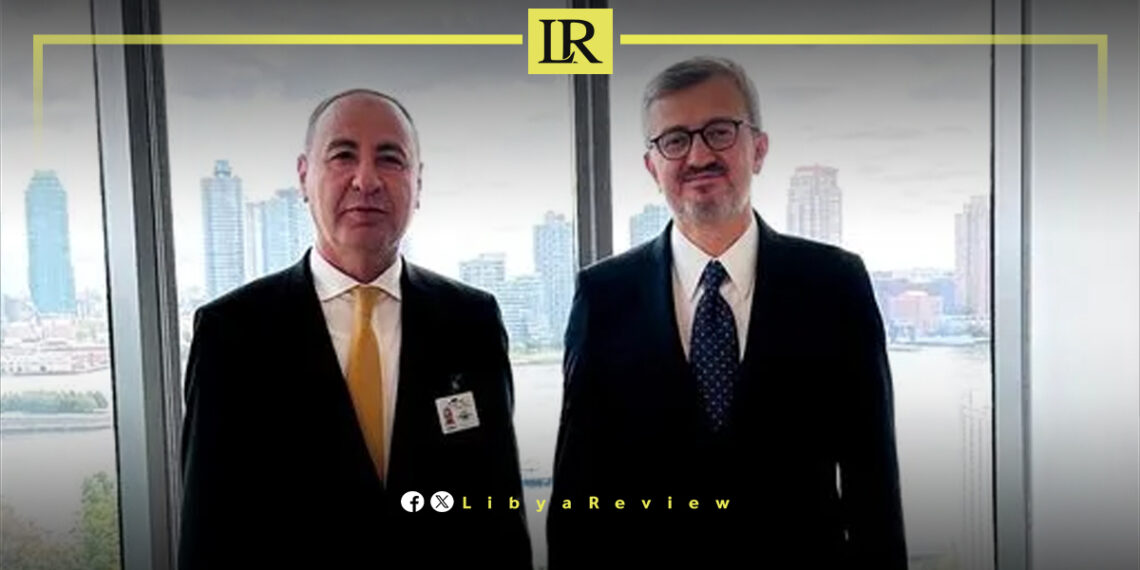On Tuesday, the Acting Minister of Foreign Affairs in the Government of National Unity (GNU), Taher Al-Baour, met with Turkey’s Deputy Foreign Minister, Burhanettin Duran.
This came during their meeting on the sidelines of the 79th United Nations General Assembly’s High-Level Week in New York, where the two officials focused on strengthening political and economic cooperation between their countries, with discussions revolving around recent developments in Libya.
Al-Baour expressed deep appreciation for Turkey’s crucial role in supporting Libya’s stability. Since Libya’s 2011 revolution, which resulted in the fall of Muammar Gaddafi, the country has faced ongoing internal conflict and division.
Turkey has been a steadfast ally to the former Tripoli-based Government of National Accord (GNA), providing military and logistical support that proved pivotal during Libya’s civil war. Under a 2019 defense agreement, Turkish support helped fortify the GNA’s control over western Libya.
However, Turkey’s involvement has raised eyebrows in the international community, with many viewing its influence in Libya as part of a broader strategy to extend its geopolitical reach.
The meeting aimed to explore further coordination between Libya and Turkey, particularly in addressing shared political and economic interests. Both sides emphasized the importance of ongoing consultation, but the growing dependency on Turkish military and logistical support has raised questions about Libya’s sovereignty and long-term stability.
Turkish companies have played a major role in Libya’s reconstruction, particularly in sectors such as infrastructure, energy, and trade, but this growing influence has sparked fears of increased foreign control over Libya’s future.
Libya’s reliance on Turkey’s military backing—solidified through a controversial 2019 defense agreement—has been a point of contention both domestically and internationally. Turkey’s presence has complicated Libya’s fragile political landscape. Many fear that Turkey’s involvement could hinder efforts toward true national reconciliation and an independent political process.
The meeting between Al-Baour and Duran also comes as Libya prepares for national elections and navigates ongoing political divisions. Turkey’s role in this process remains a sensitive topic, with critics warning that its influence could destabilize Libya’s path toward peace and hinder broader regional stability.
As Libya moves forward with its peace process, the delicate balance between welcoming foreign support and maintaining national independence will remain a critical issue. The meeting between the two officials highlights this ongoing tension, with Turkey’s role in Libya continuing to be viewed with skepticism by many.


